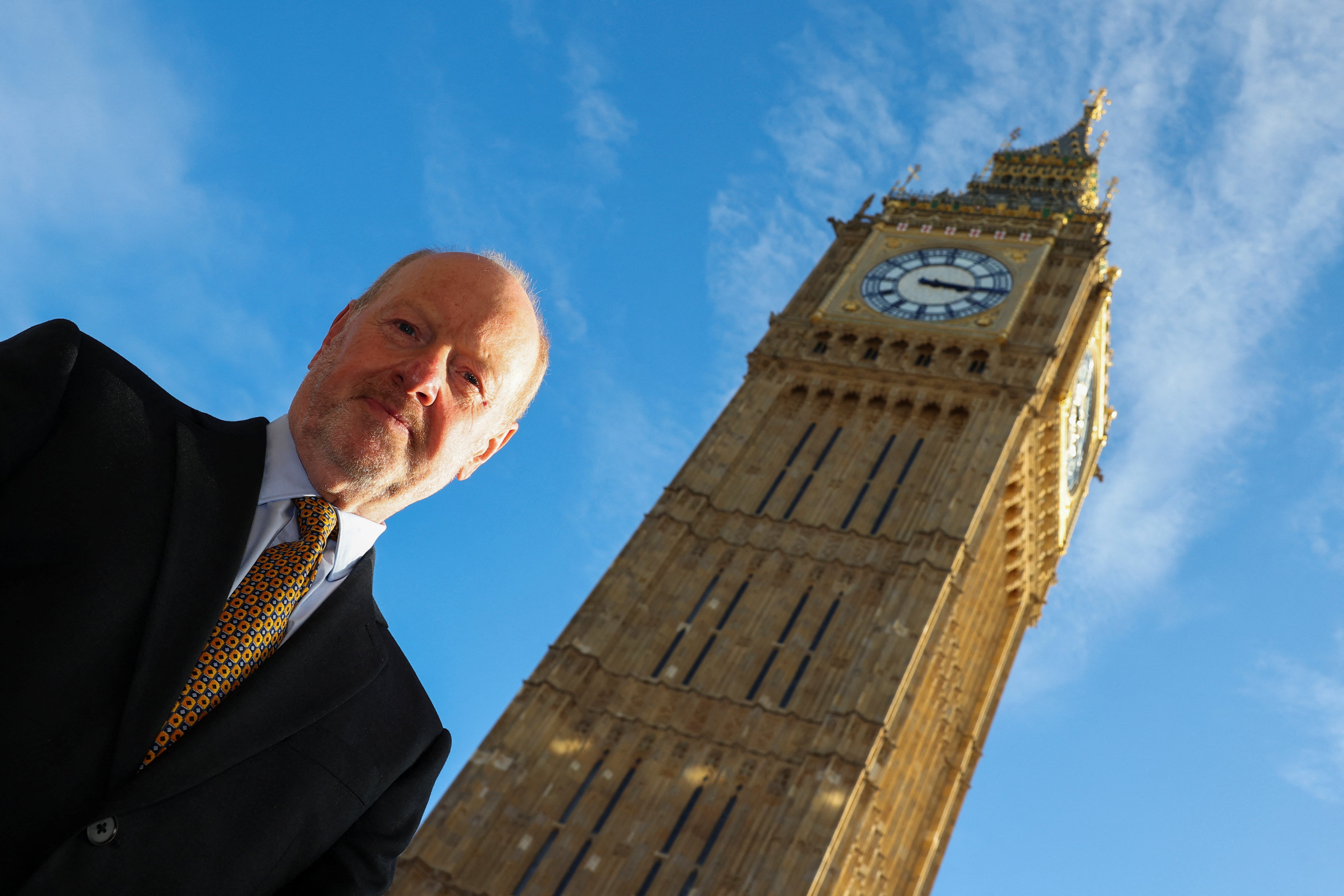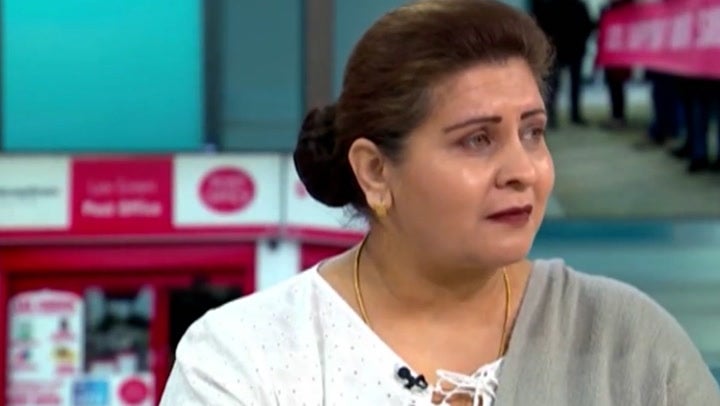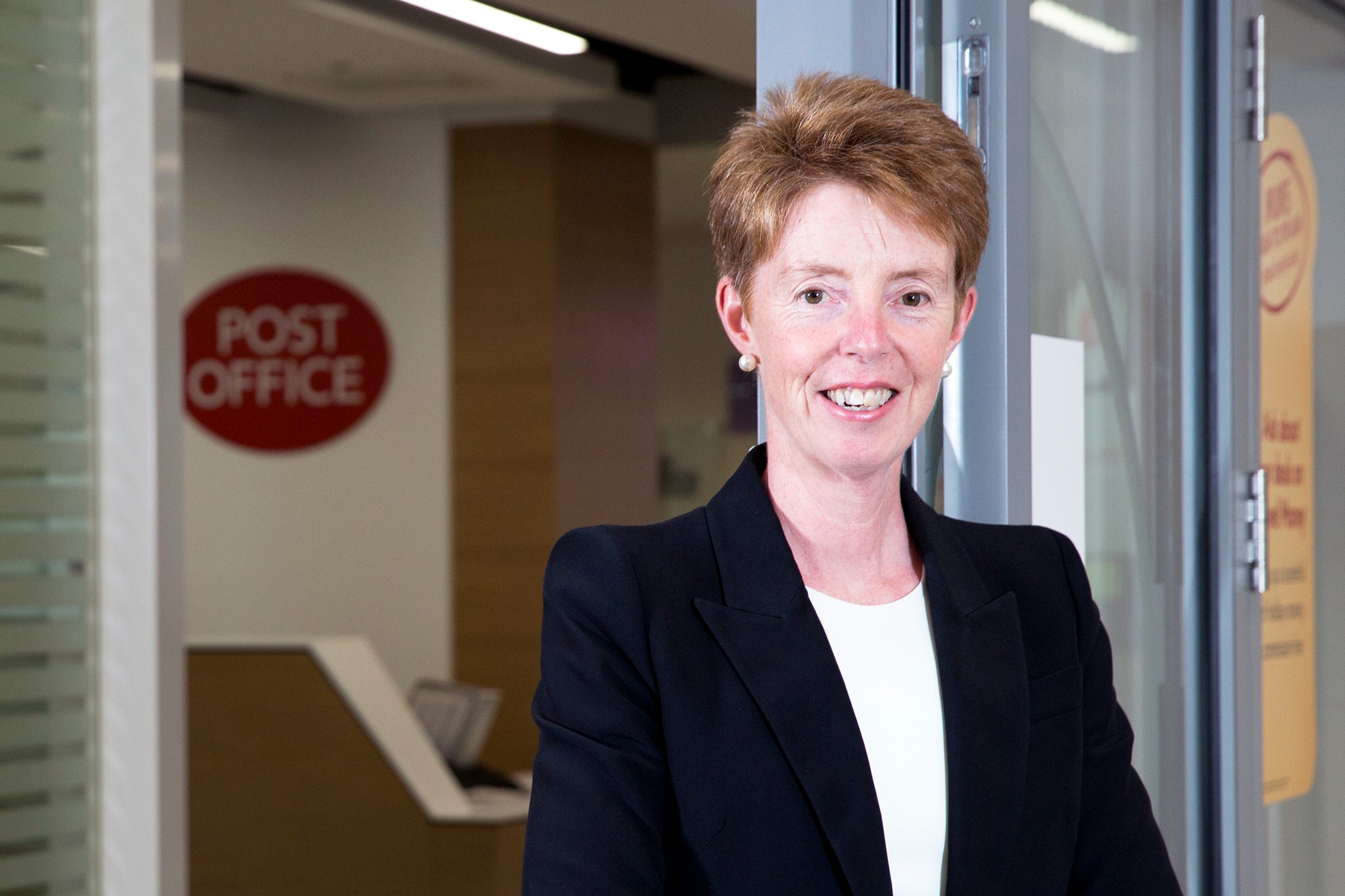‘I exposed the Post Office scandal years before the inquiry – so why is justice taking so long?’
It was an article about the subpostmasters by Katie Glass that piqued the interest of ITV and brought their plight to life. As subpostmaster Alan Bates gives evidence at the long-awaited inquiry, she explains the long road to getting their voices heard - and believed


It was after an article I’d written about the Post Office scandal was published in February 2020 that an email from a TV production company pinged into my inbox: “Having read your piece about the subpostmaster’s story, I know it’s crying out to be a drama.” Four years later, it is. And to what effect. As a consultant to the ITV drama Mr Bates vs the Post Office, it has been thrilling to see. Not just because it’s exciting to have been part of it, but because it looks like these poor men and women whose lives have been devastated by this scandal will finally get the justice they deserve.
I wasn’t the first journalist to tackle the subject, far from it. In 2010 Nick Wallis, then a presenter for BBC Radio Surrey, was contacted by Davinder Misra, whose pregnant wife Seema was in prison. Wallis has been investigating this scandal for more than a decade. Before that, there was Rebecca Thomson on Computer Weekly, who first reported seven subpostmasters’ complaints about Horizon in 2009. It was covered relentlessly by Private Eye, questions were raised in parliament – all thanks to a long campaign for justice that forced the launch of a wide-ranging public inquiry, which started hearing evidence last year. Giving the story a heart and a face is what seemed to pique the production company’s interest.
As a writer, I’ve covered suicides, murders, and stories of criminal gangs – but none has affected me the way the story I wrote about the subpostmasters did. In reporting it, I spent weeks travelling from Yorkshire to Surrey to interview them, and found the most decent and humble people I’d ever met.
It takes a certain kind of person to run a post office. These unsung heroes are not just bankers handling pensions, tellers of holiday money and sellers of Mother’s Day cards and stamps, but care workers for the communities in which they live. People like Gary Brown and his wife Maureen, who I met in the tiny village of Rawcliffe, who put chairs in their post office so they could serve tea to local pensioners. Postmistresses like Seema Misra, in Surrey, who proudly showed me a letter police had sent thanking her for saving a pensioner from fraud.

As I met them, I came to understand how post offices are the heartbeat of our country. Ticking along in busy city high streets and quiet corners of village greens, they can offer a corner of much-needed kindness, warmth and cheer to their customers – something Mr Bates vs the Post Office so beautifully captures. And these linchpins of their communities sobbed as they told me how their lives had been shattered when the Post Office wrongly accused them of theft, after a glitch in the Horizon accounting system created false financial discrepancies.
Under the terms of their contracts, they were personally liable for any financial losses and the Post Office demanded they repay money, or face prosecution or a civil claim.
Their suffering was incomprehensible. Anyone who has watched the drama can see how terribly they fared – emotionally and financially. They tried to keep up with the shortfalls Horizon introduced, some putting life savings in the tills, or borrowing money from family and friends and taking out loans they couldn’t afford. Desperate, Gary and Maureen Brown survived by eating gone-off food from their post office shelves. Like many of those caught up in the scandal, they were eventually forced to sell their home.
More than 700 subpostmasters were wrongly convicted of false accounting, theft and fraud; 230 of them were wrongly imprisoned. Seema Misra made her homemade chai for me as she told me how, two months pregnant with her second son, she was sentenced to 15 months in prison. She cried as she described begging the police not to handcuff her because she couldn’t bear the shame of her customers seeing. She remembered how afraid she was in prison and her fear of losing her unborn son. “If I hadn’t been pregnant, I would have killed myself,” she told me. She sobbed as she recounted her nightmare at home where she ran a taxi firm with her husband. Seema hadn’t been able to find any other work because of her conviction.
In Hull, Janet Skinner told me how she’d been sentenced to nine months for false accounting, taking her away from her teenage children, then incarcerated in Wakefield prison and put on suicide watch. On antidepressants when we met, she winced in pain from the spinal demyelinating disorder she suffered, which left her temporarily paralysed and which she believes was exacerbated by stress. Gary Brown had developed Bell’s palsy and fibromyalgia, brought on, he believes, by stress.

The shame they felt was as terrible as the financial consequences they endured. Some subpostmasters’ communities turned on them: villagers spitting insults and customers swearing at them, accusing them of having stolen their money. They had their homes and cars vandalised, their children were bullied at school.
Some of them whispered to me that they’d turned to drink. They told me privately of the terrible impact the stress had wrought on their marriages and relationships as they began suspecting each other of having taken money from the till. Many spoke of making suicide attempts. Four subpostmasters are known to have taken their own lives.
One of the most upsetting things for me was how the subpostmasters’ humility and trusting nature had left them so vulnerable. They trusted the Post Office – which on its website calls itself “the nation’s most trusted brand” – only to have their lives crushed by it.
The subpostmasters begged for a judicial inquiry and for their wrongful convictions to be quashed. Meanwhile Paula Vennells, the chief executive in charge for much of the time the Post Office suspected subpostmasters of fraud, was awarded a CBE for services to the Post Office and charity. She earned almost £5m while in the top job.
After the interviews, I couldn’t shake off the experiences of these good, kind and honest people, their lives ruined by a system that had little care for the human cost it had inflicted. It was why I kept in touch with some of them. Years later – when my relationship with my fiance faltered – I gave my engagement ring to one postmistress, Maria Spears. She was devastated when the Post Office claimed she owed it £35,000, leaving her forced to sell her home and uproot her three young children to try and pay her alleged debt. When she’d married her partner – who’d supported her through it all – they’d had to do it on a shoestring. Now she was celebrating her 10th anniversary with the man who’d held her hand through it all, and my ring seemed like a way I could bring them some light after the dark times we’d both been through.
As a consultant, I met with the TV company, filling them in on the parts of the story that my article hadn’t had space to cover (such as the investigation by forensic accountants Second Sight, and the Fujitsu whistleblower) and the work done by others such as MP Lord Arbuthnot, and by journalists – especially Nick Wallis’s dogged campaign. I told them about the goodness of the postmasters I’d met, and enthused about Alan Bates’s incredible work and his David and Goliath struggle to have the subpostmasters’ innocence recognised.

Like anyone who came into close contact with them, I have been frustrated for years at how their plight wasn’t really known about. Now, with the release of ITV’s drama, it’s so satisfying to hear friends furiously discussing the Post Office scandal, affected by it in the same way that I have been for years.
And it is a scandal that is still unfolding. Since Mr Bates vs the Post Officeaired, many new potential victims have contacted lawyers, including five who wish to appeal against their convictions. Rishi Sunak backed calls for a review into whether Paula Vennells should lose her CBE, before she herself announced she was doing so after a petition was signed by over a million people. The Metropolitan Police is investigating the Post Office over potential fraud offences.
Four years after a landmark victory in the High Court in 2019 which found the Horizon IT system was at fault, yet with only 93 convictions so far overturned, finally the government has announced it is drawing up plans to fast-track the appeals process so the rest of the victims can be exonerated.
It’s frustrating it’s taken a TV series complete with famous actors to get momentum behind a scandal that the media has covered and the government has known about for years. It makes you realise how much the game is stacked against individuals who those in power probably see as “little people”. Those in charge protect each other, taking huge salaries but not wanting to shoulder any responsibility that should come with that. This isn’t a new story – this scandal has been known about for 15 years. But finally their stories are being taken seriously by people who can do something for the hundreds of victims of the Post Office scandal who still haven’t received compensation. Although the Post Office agreed to settle a civil claim brought by the 555 claimants for £57.75m, most of that was taken up by legal fees.
As Maria Spears told me on the phone, although she is “blown away about the response we have had on the back of Mr Bates, things are pretty much the same”. She is still waiting for her offer of compensation, but has heard from other subpostmasters that the financial offers they have received are a fraction of what they are rightly owed. “I don’t feel they are even trying to put us back to a position we should be in if this scandal hadn’t happened. Money will never bring back the years I lost with my then young family,” she says.
I personally feel nothing can make up for how the subpostmasters have suffered. No compensation will be enough. Many died as convicted criminals, never able to clear their names. And yet I am also reminded of the postmasters’ own kindness, humility and compassion. When I spoke to them none of them hungered for money – all they wanted was to be believed. Finally, they are.
Join our commenting forum
Join thought-provoking conversations, follow other Independent readers and see their replies
Comments